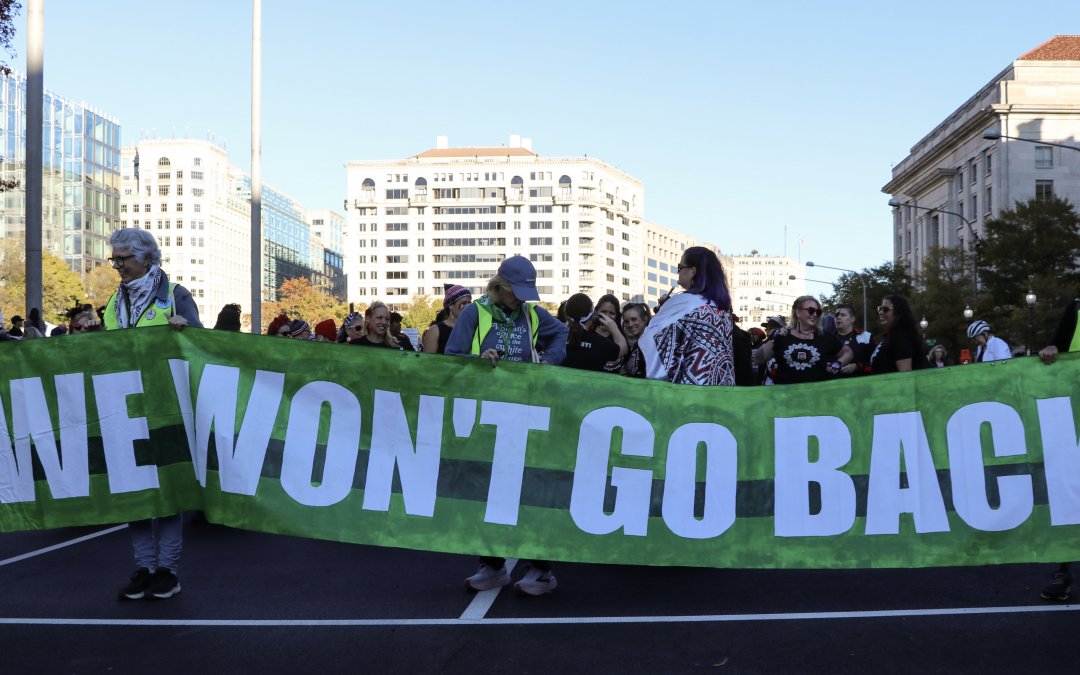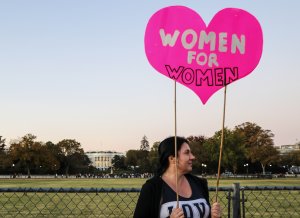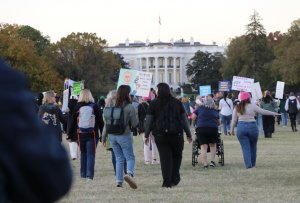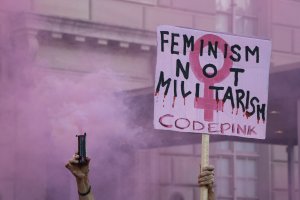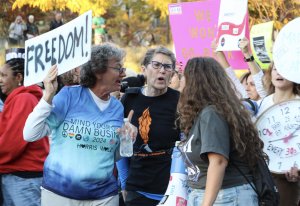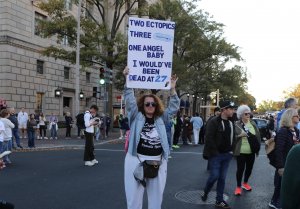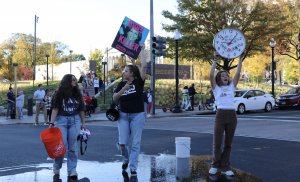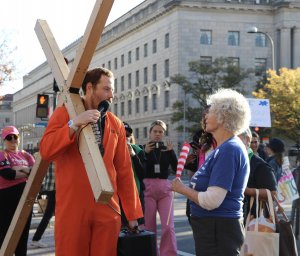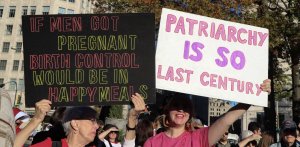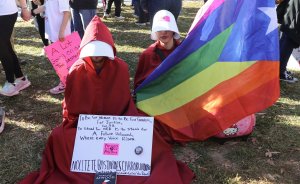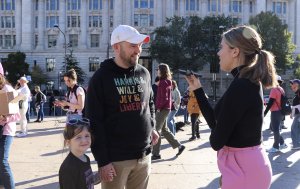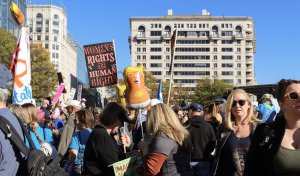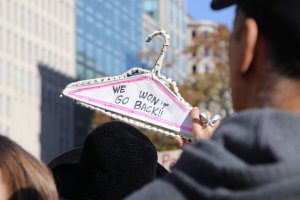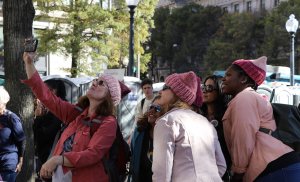WASHINGTON – As thousands converged on Freedom Plaza for the annual Women’s March to the White House Saturday afternoon, 38-year-old Robert Haswell walked hand in hand with his six-year-old daughter, Lorelei.
The social worker from Connecticut made the trip with his mother and sister, driven by a desire to expose his daughter to what he believed was a powerful gathering of women advocating for their rights.
“I wanted her to see that defending your rights and having a voice matters and that you can be heard,” Haswell said.
But Saturday’s event wasn’t the first women’s march. A day after former President Trump’s 2017 inauguration, a crowd estimated to be at least 470,000 walked the same path.
This time around there were no official estimates for crowd size, but in an interview, organizers claimed there were 10,000 people in attendance. Though this year’s event was much smaller than the one nearly eight years ago, the messages remained largely consistent as attendees held up signs that criticized Trump’s offensive comments towards women, most especially the infamous Access Hollywood Tapes where he said he could “grab ’em by the pussy” when you’re a star.
Before a flurry of speakers rallied the crowd on stage, the event’s participants mingled in the plaza and its surrounding streets with many sporting Harris/Walz campaign gear. Some exchanged pins and conversation with volunteers at tables on nearby sidewalks, many of which were there with social justice groups representing progressive causes like gun control.
Aryana Morales, a freshman at George Washington University, attended Saturday’s event as a member of “Pins for Purpose,” a student group that works to engage voters by distributing pins. On Saturday, alongside students from GW and other colleges, she handed out pins with a photo of Vice President Kamala Harris on them, tagged with the slogan “We Choose Freedom 2024”
Morales said she found the experience to be particularly moving as she prepares to vote for the first time in this election.
For some attendees, marching alongside women’s rights advocates has become a cherished family tradition.
Twenty-three year old Eva Tell now lives in Washington, but she was part of three generations of women in her family who attended Saturday’s march. Joined by her mother, Shari, and her grandmother who were visiting from East Brunswick, New Jersey, the trio reminisced about waking up at 4 a.m. for a nearly four-hour long bus ride to attend the inaugural march in 2017.
Regarding their motive for attending this year’s event, Shari Tell said, “We’re just excited to see the first woman president.”
Robert Thweatt, a 63-year-old retired financial controller from Texas, also has a long history of attending women’s marches. With his husband, Chad, and a group of friends by his side, Thweatt said he’s been to marches in Dallas, Houston and Austin in his home state, but Saturday was his third time marching for the cause in the nation’s capital.
The event drew a handful of counter-protesters around the rally’s perimeter as a few men carrying life-size crucifixes circled the marchers as they chanted anti-abortion sentiments. Even so, the day remained largely peaceful with a few dozen police officers occasionally former a barrier between the two groups.
When a few organizers took the stage, they rallied the crowd with chants of “We are not going back,” a slogan that’s become synonymous with Harris’s campaign. The march proceeded down Pennsylvania Avenue toward 15th Street, concluding at the Ellipse — just four days after Harris’s closing remarks at the same location.
While many participants were hopeful about the possibility of electing the first female president Tuesday, others attended the march out of concern for what lies ahead.
Nancy Anton traveled from Taylors, South Carolina, dressed as a Handmaid, inspired by Margaret Atwood’s 1985 dystopian novel in which a fundamentalist regime emerges in response to a fertility crisis.
“I think Margaret Atwood was a visionary, unfortunately,” Anton said. “I wish it were all just fiction, but it’s something scary enough that we really need to stand up and take notice.”
Story by Audrey Pachuta, video by Hannah Webster and photo gallery by Caroline Killilea.

